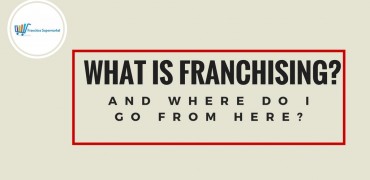What is Franchising?
Franchising is one direction an established company can take to expand their Nationwide or International franchise network. Franchising will help increase the distribution of goods and services for that business and a Franchise (licensing) agreement must be in place before a third party can obtain the rights to operate under the franchise name.
Top of the chain in Franchising is the Franchisor, the franchisor is a person or organisation that grants the third party the right to replicate their model and to operate under their franchise name within their chosen franchise territory.
Not only does the Franchisor provide the third-party licensee purchaser (franchisee) with the license to operate under their respective trademark and copyright, but they will also provide adequate franchise training, franchise support services once the franchise is established and will be responsible for supplying the new franchisee with a detailed Operations Manuel.
Origins of Franchising
Franchising can be argued to date back to when Lords allowed peasants the use of their land to farm on in return of a reoccurring fee (Management Service Fee).
The first well known ‘inventor’ to franchising was a gentleman called Isaac Singer. Just after the U.S. Civil War (1860), Singer had developed a method of mass producing his sewing machines, but found it virtually impossible to maintain the machines if they were to need repair/upgrades. The U.S. in terms of land mass was just far too big for him. The only feasible way Singer could get around this problem was to licence out areas for ‘sales men’ to undertaker the repair and maintenance of the sewing machines within their geographical area (Franchise Territory). The use of a contract imposed by singer would demonstrate the beginning of the Franchise Agreement.
Over the following century, forms of franchising became more and more popular as it was an easier way to sell into an unreachable area.
The Boom period for franchising occurred just after World War Two, as economic output and a growth in population changed together. By the mid 1960’s some of the world’s largest fast food franchise brands had made their way over to the UK, this movement was led by McDonalds and KFC.
Business Format Franchising
This is seen to be the most common method for franchising. A franchisor that provides a Business Format Franchise isn’t just supplying the franchisee with the franchise trade name, services provided and products, but a detailed system for operating that franchise to its full potential. Once the franchise fee has been paid and the relevant due diligence has been undertaken the new franchisee can expect to receive the following as part of their franchise package –
• Site Selection
• Franchise Development Support
• Continual Franchise Support
• Franchise Operation Manuals
• Comprehensive Franchise Training
• Detailed brand standards
• Franchise Marketing Strategy
• And a Business Advisory support service from the Franchisor.
It’s key for a Franchisor to choose a third party that they truly believe will carry on the same values and methodology that they have instilled to get their franchise to the place it is today. There’s no point in just accepting anyone, as this could have far great implications long term (law suits, damaging the brand name, potential loss of earnings from that franchise territory). Key to franchising is building relationships and establishing that trust with your franchisee. One of the main reasons that Business Format Franchising is so successful is down to the fact that franchisees have such a fruitful relationship with their franchisor, and has subsequently resulted in 90% of franchisees reporting satisfaction with their operations.
Important Factors to Franchising
Arguably two of the most important facets when it comes to franchising are the brand name and the systems and support provided by the franchising. The Franchisor's name is so important as consumers will decide their business based upon what they know, or what they believe they know about that franchise brand. If they don’t know anything then chances are they’ll choose a more recognisable brand to them. All that matters to the consumer is that brand expectations are being met, and to ensure this happens the Franchisor NEEDS to deliver adequate franchise training and franchise support. The greatest franchisors (those succeeding) are those that provide systems, tools and support so that their franchisees can live up to the franchise brands expectations and thus meet consumer satisfaction.

